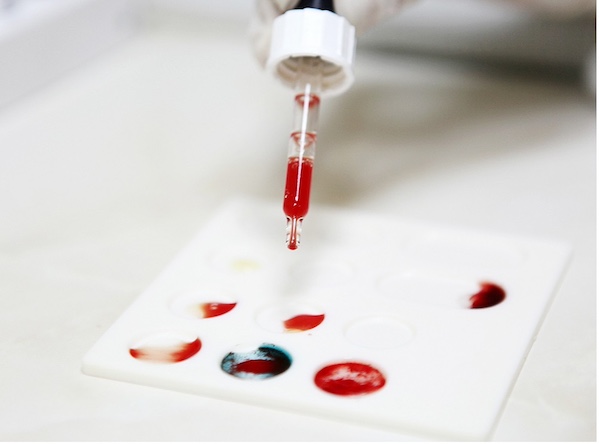New Method Enables Detection of Lung Cancer through Blood Tests
February 5, 2024
Source: drugdu
 271
271
 Lung cancer continues to be a very deadly disease with only 19% of diagnosed patients remaining alive after five years. This makes it important to accurately detect the different forms of lung cancer, each with its own treatment and approach, at an early stage so that patients can be better treated. Currently, there is a gold standard for determining whether someone has lung cancer. If suspected, the first step is a scan, such as CT or PET CT. That gives insight into where the symptoms may be coming from and the location of possible cancer cells or a tumor. The second step is a biopsy in which a ‘morsel’ of tissue is removed and examined under the microscope. However, evidence of tumor cells cannot always be obtained. Additionally, sometimes people are too old or too sick and the biopsy itself is too risky for their health. Also, sometimes people refuse to undergo the procedure. Now, researchers have developed a method to demonstrate the presence of lung cancer through blood tests by examining proteins in the blood of people with, without, and with possible lung cancer. This method can be developed in the future, to make it suitable for predicting lung cancer.
Lung cancer continues to be a very deadly disease with only 19% of diagnosed patients remaining alive after five years. This makes it important to accurately detect the different forms of lung cancer, each with its own treatment and approach, at an early stage so that patients can be better treated. Currently, there is a gold standard for determining whether someone has lung cancer. If suspected, the first step is a scan, such as CT or PET CT. That gives insight into where the symptoms may be coming from and the location of possible cancer cells or a tumor. The second step is a biopsy in which a ‘morsel’ of tissue is removed and examined under the microscope. However, evidence of tumor cells cannot always be obtained. Additionally, sometimes people are too old or too sick and the biopsy itself is too risky for their health. Also, sometimes people refuse to undergo the procedure. Now, researchers have developed a method to demonstrate the presence of lung cancer through blood tests by examining proteins in the blood of people with, without, and with possible lung cancer. This method can be developed in the future, to make it suitable for predicting lung cancer.
To find a testing method that is much less invasive for lung cancer patients, researchers at Eindhoven University of Technology (TU/e, Netherlands) first examined blood from three groups of people: with, without, and with possible lung cancer to ascertain the proteins. Interestingly, they found that in 13% of patients, the current gold standard could not conclusively determine whether or not these patients had lung cancer. The patient survey provided a huge database the researchers were able to work with. The team developed new detection methods for quantifying two promising lung cancer protein tumor markers based on liquid chromatography-tandem mass spectrometry (LC-MS/MS). This is a method that looks at the weight of proteins in the blood and thus recognizes tumor markers.
This allowed the researchers to detect these markers even at very low concentrations in the blood of patients with lung cancer. The new methods can help in follow-up studies to find out whether LC-MS/MS-based detection can also add value in clinical practice in the hospital compared to current methods. To facilitate the step to the hospital or clinical practice, the team has developed not only the diagnostic method but also a decision algorithm for GPs. Since GPs have to pay attention to a combination of factors instead of just one marker, the decision algorithm can help them correctly interpret blood test results according to the new method. The researchers are now preparing to conduct a study to validate the method which could one day allow people to go to their doctor and get a blood test to find out whether they have lung cancer.
“Blood sampling is much less painful and risky. Especially for the high-risk lung cancer group, where smoking and age are the main risk factors,” said Sylvia Roovers-Genet, a PhD researcher at TU/e. “We have now scientifically proven that lung cancer can be demonstrated in blood. We can now use our method, based on blood tests, to be able to say with at least 95 percent certainty for two-thirds of patients that they have lung cancer.”
Source:
https://www.labmedica.com/molecular-diagnostics/articles/294800127/new-method-enables-detection-of-lung-cancer-through-blood-tests.html
Read more on
- Gusekirumab Injection Accepted by CDE, Multiple Pipelines Advancing Simultaneously March 4, 2026
- Yifan Pharmaceutical’s teriparatide injection has been accepted by the CDE (Center for Drug Evaluation), adding a new domestic player to the osteoporosis treatment field March 4, 2026
- //news.yaozh.com/archive/47318.html PD-1 sales surge March 4, 2026
- A major breakthrough! Roche’s oral BTK inhibitor achieves its third Phase III clinical trial victory, a game-changer in the multi-billion dollar MS (manufactured pharmaceuticals) market. March 4, 2026
- GB19 Injection Approved for Clinical Trials of Cutaneous Lupus Erythematosus March 4, 2026
your submission has already been received.
OK
Subscribe
Please enter a valid Email address!
Submit
The most relevant industry news & insight will be sent to you every two weeks.



